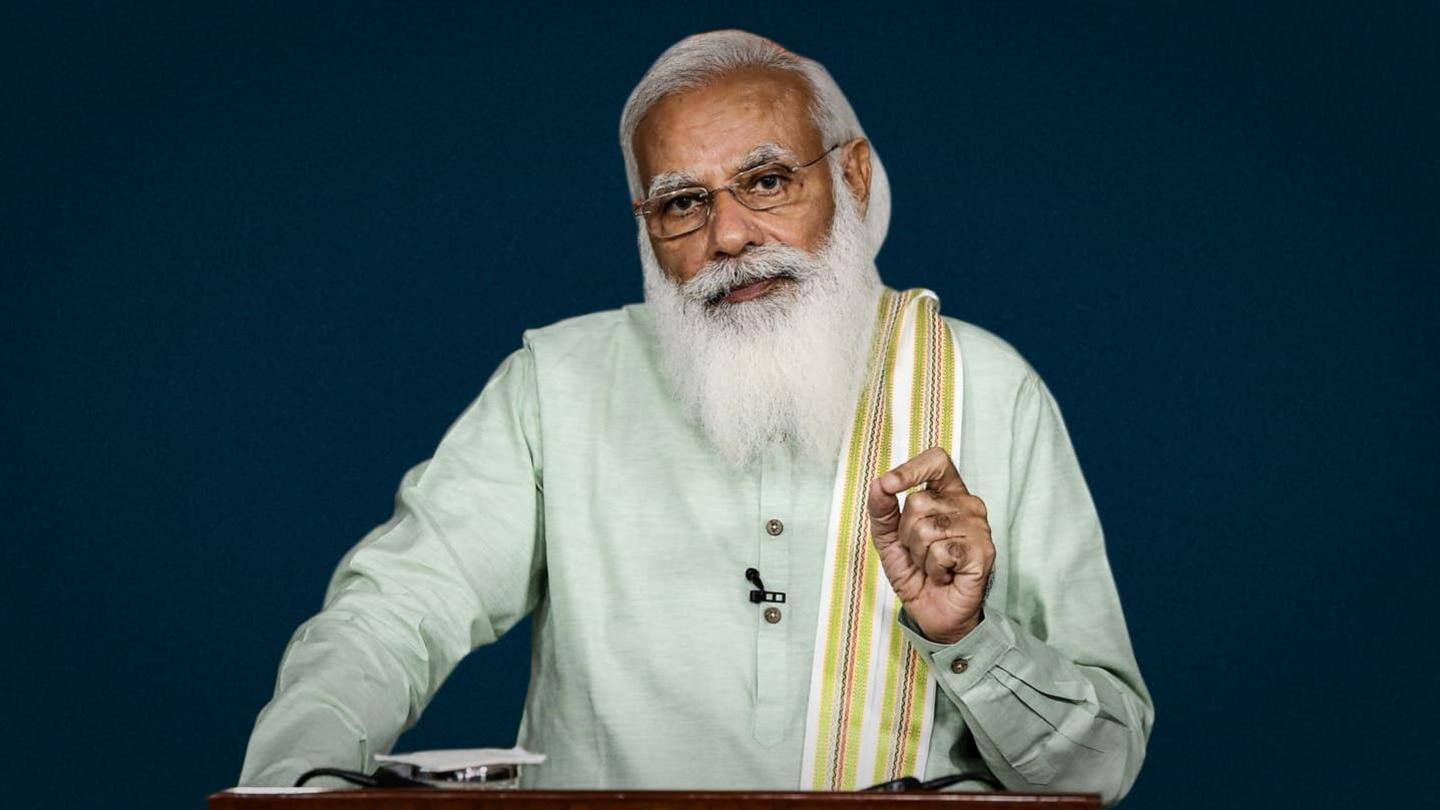
Peace, talks only solution to Russia-Ukraine war: Modi in Berlin
What's the story
PM Narendra Modi on Monday said there will be no "victorious party" in the Russia-Ukraine war, and peace and talks are the only solution.
Modi—who is on a three-day Europe tour—made the remarks during a meeting with German Chancellor Olaf Scholz in Berlin.
He further said the Ukraine crisis has increased commodity prices which will "impact developing countries" and also have a "global impact."
Context
Why does this story matter?
Modi arrived in Berlin on Monday as part of the first leg of his three-nation Europe tour.
Even though he called for peace and condemned the civilian killings in Ukraine, he didn't outrightly name Russia, reflecting India's neutral stance on the Russia-Ukraine war so far.
Notably, Russia and India share a decades-long partnership, covering many areas, including defense, manufacturing, and technology sharing, among others.
Visit
Modi's first meet with Scholz as new German Chancellor
Modi was received by Scholz in a ceremonial welcome at the Federal Chancellery in Berlin upon his arrival on Monday.
The two leaders held a one-on-one meeting and discussed key areas of bilateral cooperation under the overall strategic partnership along with regional and global developments.
It also marked Modi's first interaction with Scholz as German Chancellor after he assumed office in December 2021.
Details
Russia violated fundamental principles of international law: Germany
After the meeting, Germany issued a joint statement criticizing Russia over its aggression against Ukraine.
"The war and the brutal attacks against the civilian population in Ukraine show how unrestrained Russia has been in violating the fundamental principles of the UN Charter," Scholz said.
"I repeat my appeal to (Vladimir) Putin to end the war, to end this senseless killing," added the German Chancellor.
Joint statement
India, Germany expressed concern over Ukraine humanitarian crisis
India and Germany expressed concerns over the ongoing humanitarian crisis in Ukraine and condemned the civilian deaths there.
Both countries "emphasized that the contemporary global order has been built on the UN Charter, international law and respect for sovereignty and the territorial integrity of states."
They also discussed the "destabilizing effect of the conflict in Ukraine and its broader regional and global implications."
Quote
Global peace, stability in critical condition: Modi
"Recent geopolitical incidents have shown that world peace and stability are in critical condition and revealed how all countries are interconnected," Modi said, adding that India has provided humanitarian assistance to Ukraine and also called for peaceful relations between Russia and Ukraine.
IGC
Modi-Scholz co-chaired 6th India-Germany IGC
On Monday, Modi and Scholz also co-chaired the 6th India-Germany Inter-Governmental Consultations (IGC).
The meeting saw the attendance of Finance Minister Nirmala Sitharaman, External Affairs Minister S Jaishankar, and National Security Advisor Ajit Doval, too.
Talking about IGC, Scholz said, "These consultations help us deepen our relationship."
"We are ready to continue and deepen the close cooperation with India on global issues," he added.
Information
Scholz invited Modi to G7 summit
Meanwhile, Scholz has also invited PM Modi to the 48th G7 summit to be held in June in Germany. Moreover, a joint statement by both the countries said, "India looks forward to hosting the next IGC."
Discussions
What else was discussed in Modi's Berlin visit?
Modi and Scholz agreed to maintain a free, open, and inclusive Indo-Pacific.
They "underlined the importance of unimpeded commerce and freedom of navigation as per International Law."
The implementation of the India-EU Connectivity Partnership and the launch of the India-EU Trade and Technology Council were also discussed.
Cooperation with regional organizations such as India's BIMSTEC and multilateral forums like G20 was also discussed.
Afghanistan
Leaders held discussions on Afghanistan
Modi and Scholz expressed concern over humanitarian conditions, the resurgence of violence, violation of human rights, and denying women access to education in Afghanistan.
India and Germany also reaffirmed the importance of UNSC Resolution 2593 (2021), which demands Afghan territory not be used for sheltering, training, planning, or financing terrorist acts.
Both countries also said they would continue their cooperation on the counter-terrorism front.